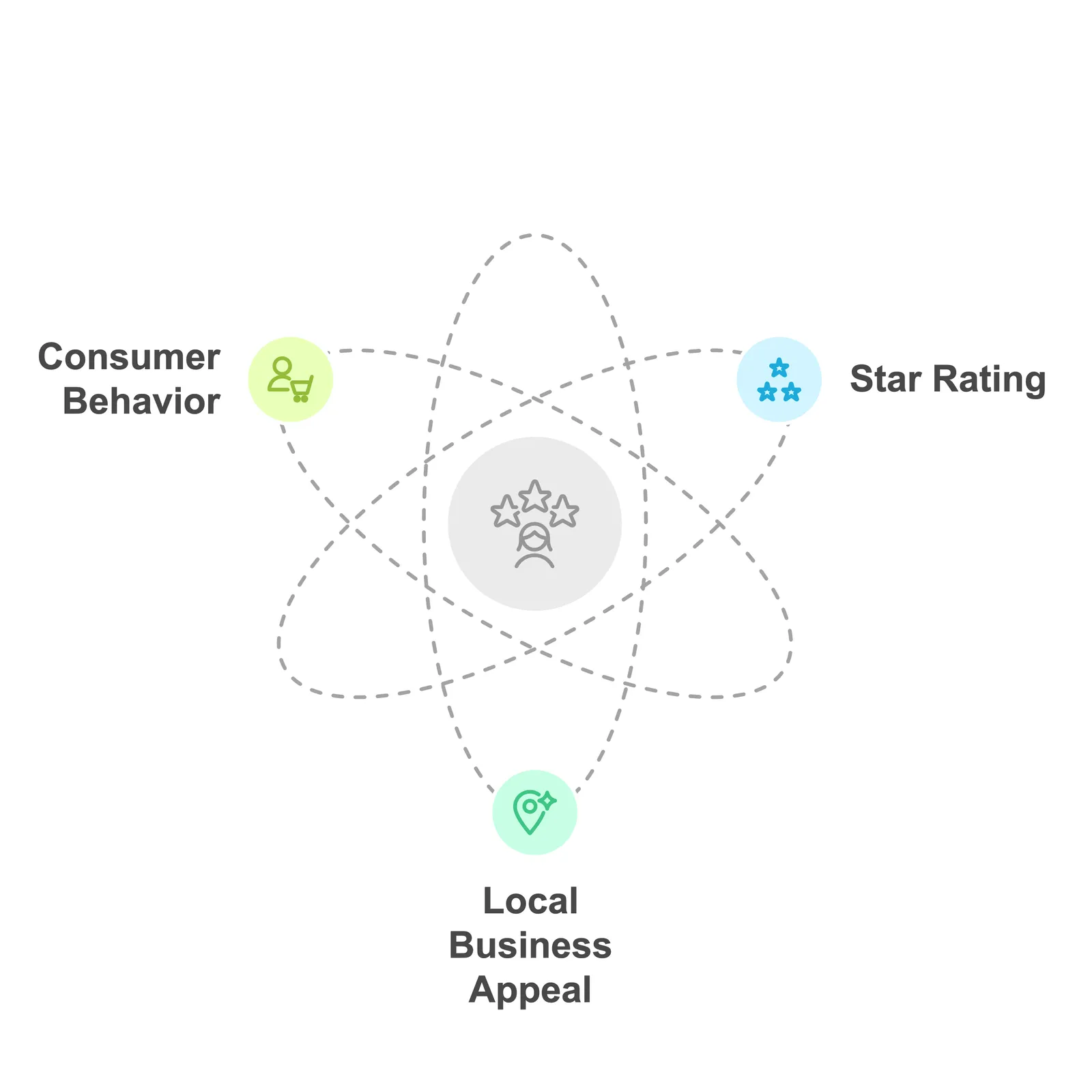
100+ Updated Online Review Statistics You Should Know in 2026
Updated by Jan 12, 2026
Reviews matter because they directly affect how we see a business. For customers, they’re a quick way to know if something is good or worth it. For businesses, positive reviews build trust and bring in new clients, while negative ones show where improvements are needed. They’re a big part of how we make decisions and how businesses grow.
Why are online reviews important?
Online reviews are crucial because they hold a lot of weight in today’s decision-making process. When we’re looking for a product or service, reviews act as a quick reference to see if it’s worth our time and money. People trust other people's experiences more than just the company’s word, so positive reviews can help build credibility and attract new customers.
On the flip side, negative reviews aren’t necessarily bad, they offer businesses a chance to see where they’re falling short and make improvements. Essentially, online reviews are more than just ratings; they shape how businesses are perceived and can directly impact their growth and success.
Top Online Review Statistics For 2026
- Around 92% of consumers check online reviews and testimonials before making a purchase.
- Research shows that 54% of people are likely to leave a positive review for a family-owned business.
- Businesses with 10 or more reviews see a 15-20% increase in search traffic.
- A solid 69% of consumers feel good about choosing a business with positive reviews.
- 46% of consumers trust online reviews just as much as recommendations from friends and family.
- If a business turns a negative experience into a positive one, 79% of customers are “likely” or “highly likely” to leave a positive review.
- 21% of B2B buyers say that finding solid customer references is a major hurdle in making SaaS purchasing decisions.
- Nearly 56% of B2B software buyers take into account how much users like the product when deciding to make a purchase.
How do online reviews drive trust?
Online reviews are one of the most effective ways to build trust with your audience. When people see feedback from others who’ve already used your product or service, it creates a sense of authenticity and reliability. Positive reviews show that your brand delivers on its promises, while negative reviews, when addressed properly, can show customers that you care about improving and value their input. In today’s world, where people turn to reviews before making decisions, having a solid review presence is crucial for establishing trust and loyalty with your customers.
Here’s more –
- Nearly 9 out of 10 users say they've made buying decisions based on online reviews.
- 93% of customers expect businesses to respond to their online reviews.
- Only 3% of consumers claim they never read online reviews.
- Around 56% of consumers have changed their opinion about a business after seeing how they responded to a review.
- Online reviews are a stronger motivator than discounts, with consumers 1.5 times more likely to be influenced by them.
- Almost 50% of all internet users post online reviews every month.
By showcasing candid feedback, businesses provide customers with the respect and importance they seek. For today's consumers, online reviews act as a reliable reference point for all kinds of purchases. With dependency peaking, these reviews now influence the financial success of numerous sectors.

Online reviews are becoming increasingly influential, with nearly half of all internet users posting reviews at least once a month. Consumers now expect businesses to maintain high ratings, with 71% unwilling to consider a business with an average rating below three stars. This trend underscores the importance of brands actively managing their online reputation to meet customer expectations.
- Customers are willing to spend 31% more on a business with "excellent" reviews.
- 92% of consumers are likely to choose a local business with at least a 4-star rating.
- 72% of consumers will only become customers after reading a positive review.
➡️When it comes to reviews, it's not just about having them, it's about where they show up!
Your reviews need to be visible on the platforms your customers are using.

Did you know that 36% of people check two review sites when researching local businesses, and 41% jump between three or more? That means it’s crucial to spread your reviews across multiple platforms to connect with your audience wherever they are.
- Listings with photos receive 42% more requests for directions and 35% more click-throughs to websites.
- Yelp has an average of 178 million unique visitors each month via its mobile, desktop, and application.
- 68% of respondents have purchased through Facebook, 49% through Instagram, and 38% through TikTok.
- Almost 10% of customers are using ChatGPT and other generative AI tools as alternative sources of information for reviews.

On the other hand, Facebook serves a slightly different, nuanced role. Even with its vast network, there’s a decline in users’ trust and use of reviews when compared to Google and Yelp.
- Only 48% of users consider Facebook feedback, as opposed to 54% earlier.
- However, Facebook can't be ignored as 50% of social referrals come from here
- And 52% of purchases, both online and off, have some influence from Facebook reviews.

Content of the reviews matters, as well as how they’re sourced
Customers don’t just care about superficial ratings, they also care about what is actually written the reviews and how authentic they sound. Many customers these days are also wary of how genuine the reviews are and how they were sourced. Customers also appreciate up-to-date representations of brands as compared to their past images. Shady, fake reviews may not work in the long run. It's, therefore, better for businesses to wait for authentic compliments to arise naturally, no matter how slow the process. A few honest reviews can create a sense of trust in places it never previously existed.
- A striking 62% will not support brands found to be tweaking feedback dishonestly. Indeed, the pure quantity of reviews is critical.
- Google eliminated more than 170 million policy-violating reviews in 2023.
- Amazon continues to be the primary source of fake reviews.
- Consumers express skepticism towards reviews that only contain ratings without any written content, with 47% suspecting them to be fake.
- Freshness of the reviews is as important. Reviews that are more than three months old are irrelevant to as much as 85% of people.
- ‘Sort by newest’ is considered the most useful feature when looking at reviews by 47% of consumers.
- 48% of customers prefer reviews written by a named user instead of anonymous reviews.
- 54% expect a minimum average rating between 4-5 stars.
- The average length of reviews written in 2023 was 213 characters+
- In 2023, there was a 5.95% annual rise in reviews accompanied by comments.
- 89% said that reviews of local branches will impact their decision to do business with that store in some way.
- 91% of people believe that reviews from local customers about chain stores and franchises affect how they see the brand in some way.
It's wiser for companies to build genuine relationships that give rise to sincere reviews. The road might be challenging, but every review acts as a stepping stone that, eventually, brings growth and stability to the brand. Seen in this light, positive reviews are self-sustaining - a confirmation of quality and service that draws more compliments for your brand. The most enduring businesses encourage transparency, allowing their customers' endorsements to rise and be heard on their own.
Why Review Management Should Be Your Top Priority
In the flood of online views, how a company reacts could significantly impact consumer confidence. In fact, a whopping 97% of people who read reviews also pay attention to the business's reaction to the feedback they get, giving them the crucial chance to course-correct.

- 88% of buyers pick a business that responds to all of its reviews, while just 47% would pick one that doesn’t reply to reviews at all.
- The most popular ways to request reviews are through email (32%), in-person (28%), and via social media (27%).
- 58% of customers preferred an AI-written response when shown one written by a human and one written by an AI.
- 42% of review responses were automated.
- 34% expect to get responses within 2-3 days after they leave a review.
- About 40% of displeased customers want nothing more than an apology, creating an enormous opportunity for thoughtful engagement.
- A sincere, quick admission of fault might turn critics into advocates - as high as 79% aver they would "probable" or "extremely probable" give a favorable review if a bad encounter was flipped into a good one.
- Although more than one-third of clients just seek acknowledgement of their grievance, no response can be interpreted as apathy, pushing away 86% of potential customers.
- To counteract the effect of one criticism, it typically takes around 40 positive comments for every 100 positive reactions or praises you get.
While damage limitation has its boundaries, being proactive is essential. Patrons are more prone to share disappointments than compliments, necessitating exceptional customer experiences from the start. While some criticisms seem unavoidable, timely, empathetic responses are vital for damage control. Rescuing one consumer after another, best response practices can assist brands in regaining trust - and recouping lost business.
In a world where customers have immediate, universal platforms, managing reputation has taken the front seat for shaping public opinion, and financial success. Online reviews give people enormous clout; without interaction, companies leave their futures entirely up to the whims of their customers.
How Reviews Work for Different Industries
Reviews are a game-changer across industries, but each sector has its own set of patterns. Google dominates with 97% of retail, 94% of healthcare, 92% of legal, and 90% of home services reviews.

Online Review Statistics for Healthcare
- 94% of healthcare patients use online reviews to assess providers. It’s the first place potential patients check when evaluating practices.
- Around 59% of patients say online comments affect their choice of healthcare providers. So, making sure your reviews shine can make a big difference.
- 50% of patients are willing to go outside their insurance network if the provider has great reviews.
- You can form an opinion about a healthcare practice based on just 1-6 reviews.
- Healthcare businesses are sending out the most review requests, with 51% of reviews being manually responded to.
Online Review Statistics for Retail
- Positive feedback can boost sales, with conversion rates jumping by up to 380% for high-ticket items.
- 61% of reviews in retail are manually responded to.
- 57% of shoppers read reviews even when shopping in person.
- 8 out of 10 shoppers check product reviews on their smartphones while in-store.
- 65% of consumers don’t trust the ratings on online shopping platforms.
- Retailers are using SMS more than any other sector to request reviews, with 98% of SMS review requests opened, and 95% of them being opened and responded to within 3 minutes.
Online Review Statistics for Restaurants:
- About 59% of customers leave reviews for restaurants. That means your reviews can seriously impact your restaurant’s reputation.
- 73% of people searched for local restaurants last year. Reviews play a huge role in those decisions.
- Yelp is crucial, with 29% of consumers checking Yelp for reviews of food and drink businesses.
- A 1-star increase in Yelp reviews can boost revenue by 5-9%, according to a Harvard Business School study.
- 59% of diners avoid a restaurant because of negative online reviews.
- 77% of customers trust reviews from other diners more than professional critics.
- Gen Z is the toughest crowd. 70% would refuse to visit a restaurant if a friend mentions a bad review.
Online Review Statistics for Hospitality
- Over 80% of travelers check reviews before booking a hotel. Reviews are key to their decision-making.
- 86% of people would ignore a great deal from a company with negative reviews.
- 53% of reviews in hospitality get manually responded to.
- 4 out of 5 hoteliers respond to every negative online review, showing they’re actively trying to resolve issues.
- 3 out of 4 hoteliers reply to every positive online review, keeping the rapport with satisfied guests strong.
- 31% of hotels assign a team member to handle all online reviews.
Online Review Statistics for Automotive
Car shoppers use feedback to sidestep costly blunders, carefully considering options across various gadgets as poor service results in immediate harsh criticism.
- 80% of car reviews focus on staff, with 70% of those being positive. Customer service is key in this sector.
- Poor communication is mentioned in 37% of reviews, often leading to negative feedback.
- Negative reviews are almost five times more likely to mention price compared to positive ones.
- Reviews for Electric Vehicles (EVs) tend to lean more negatively, with more 1-star ratings than the average.
- Customer deals rarely influence the overall experience, with only 3.8% of positive reviews and 2.1% of negative reviews mentioning them.
Reviews in Other Industries
- In the service sector, 82% of customers check reviews before choosing a local business. Online reviews are essential for credibility.
- The Property Management sector leans heavily on Google reviews, but 20% of reviews also appear on platforms like apartments.com and apartmentratings.com, helping potential renters make informed decisions.
- Legal reviews are mostly hosted on Google (92%), with niche sites like Lawyers.com, Avvo, and Martindale also holding weight.
To sum it up, reviews are more important than ever across all sectors. The approach might vary depending on your industry, but the impact is undeniable. Whether you’re in retail, healthcare, or hospitality, handling reviews well can be the difference between a thriving business and one that fades out of favor. Keep your review game strong and always respond thoughtfully, it’s a powerful way to build your reputation and stand out in a crowded market.

Synup makes review management simple by giving you a single platform to keep track of customer feedback across all the major review sites like Google, Yelp, and Facebook. With its easy-to-use dashboard, you can monitor reviews, respond quickly, and stay on top of what customers are saying. Plus, Synup automates the process of requesting reviews, helping you gather more feedback and build a solid online reputation. The sentiment analysis tools also give you valuable insights into customer opinions, so you can act on them and engage more effectively. It’s all about saving time, staying organized, and keeping your reputation strong.
Book a demo with a product specialist
To see how Synup can help you Boost online visibility with unique business profiles for each location
